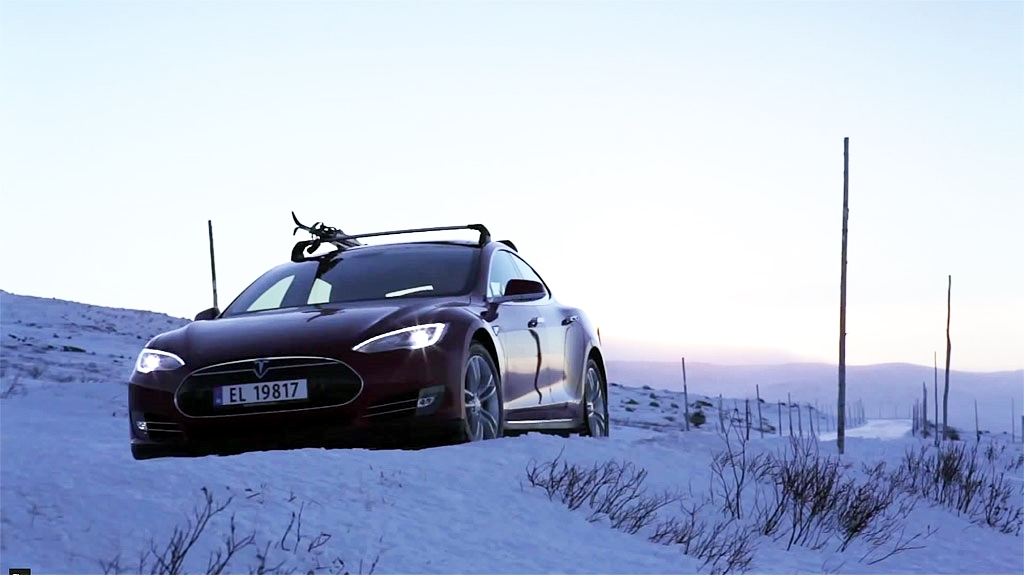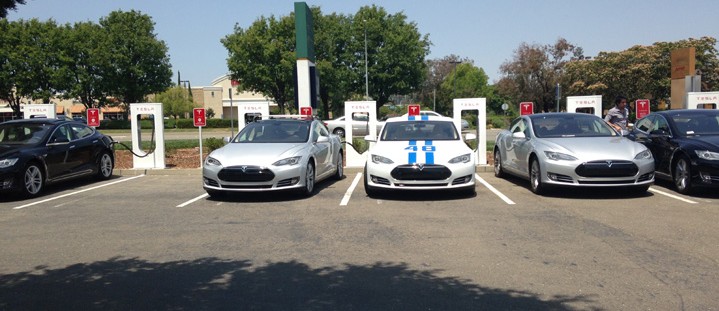News
Why Norway Loves the Tesla Model S
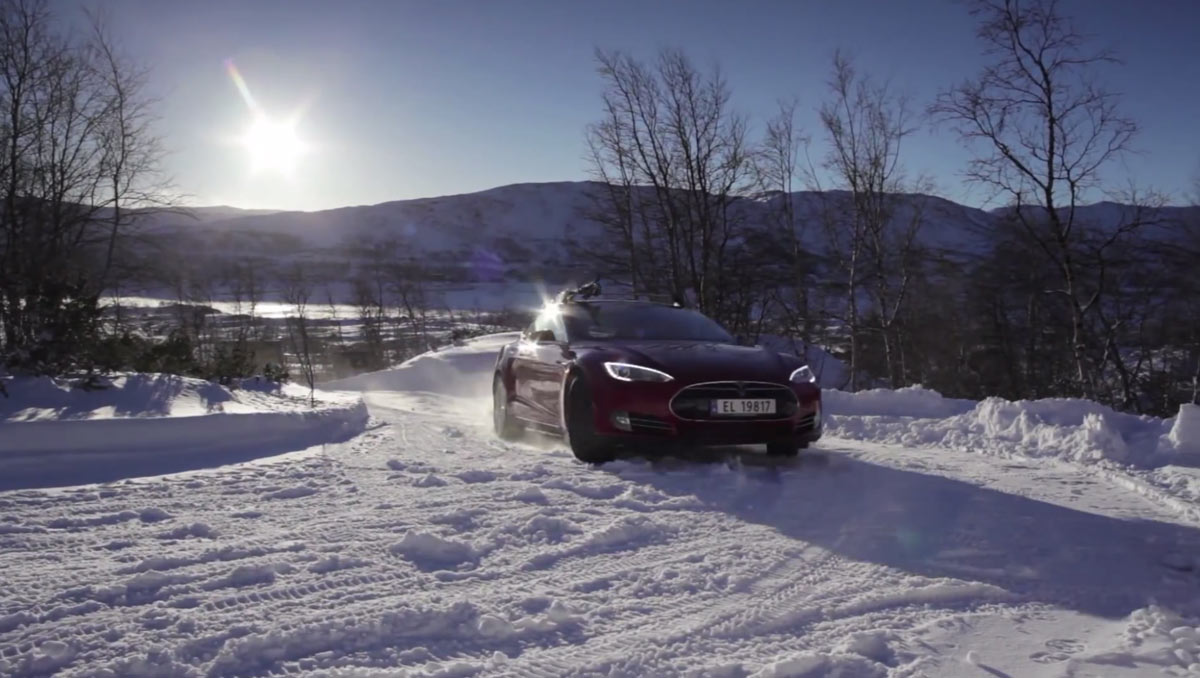
In January, Elon Musk made some controversial and critical remarks about hydrogen fuel cell cars when addressing a group of journalists during a Q&A session in Detroit. Musk’s comments were pertinent to my reading audience, so I published them as a blog post.
I then noticed something peculiar. The post had received hundreds of views from a single country: Norway. In fact, most of the views during a two-day period originated from this icy nation of only 5.1 million inhabitants.
Norway’s Best-Selling Car
During much of 2014, Tesla’s Model S was Norway’s best-selling vehicle. Not best selling electric car, but best-selling vehicle overall.
Sales of the Model S have gone gangbusters since its introduction in Norway. In the year and a half since its debut, in the country that’s famous for hosting the 1994 winter Olympics and being home to the popular Netflix show Lilyhammer starring Sopranos veteran Steven Van Zandt, the Model S has been setting records—and pleasing thousands of customers.
As reported by New York’s Daily News in April 2014, the Model S outsold Ford’s entire line of cars and sold double the number of Volkswagen Golfs, normally the number one seller in the snowy, narrow country that borders Sweden and Finland.
During the same period, the expensive Model S outsold the Nissan LEAF by a margin of three to one. Three to one. This goes counter to basic marketing dynamics, where more expensive products typically sell in lower quantities. Depending on battery configuration and options, the Model S is two to four times more expensive than the LEAF.
Satisfying Demand
It seem that the introduction of the Model S helped satisfy a pent up demand for performance-oriented electric cars in the Scandinavian country. As reported in the AID Newsletter (Automotive Industry Data) in September 2013, Elon Musk’s poster child for all things auto electric sold 184 units in its debut month of August 2013. It sold 322 units in September—besting the number two Volkswagen Golf, which sold only 256 cars. Not bad for right out of the gate (and in a nation of fewer than six million residents).
EV News Report, in a November 2014 article, reported that Norway’s goal to put 50,000 electric cars on the road by 2017 should be reached sometime in 2015. In the world of government initiatives, exceeding goals is almost unheard of.
In December 2014, CNNMoney published an article entitled Norwegians Love Tesla More Than Americans that spotlighted the fact that Tesla has sold more than 6,000 Model S sedans in the ironically oil-rich country. This is nearly 10% of the 61,000 all-electric sporty sedans sold globally since its introduction in 2012.
But why?
Part of the reason is simple economics. Norway’s government has offered steep incentives on battery electric vehicles to motivate its citizens to purchase zero emission cars. “Teslas and other electric vehicles are spared the steep sales taxes that can easily double the cost of a car,” reported CNNMoney last December.
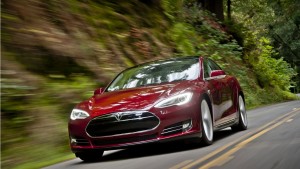 Norway’s automotive sales tax can “double the cost of a car.” Imagine that you heard that Tesla was having a 50% off sale on the Model S. Would you be interested?
Norway’s automotive sales tax can “double the cost of a car.” Imagine that you heard that Tesla was having a 50% off sale on the Model S. Would you be interested?
Norwegians are given additional incentives to jump on the electric car bandwagon, including the ability to travel in bus lanes, free parking, and no toll road charges (prices for which range from $0.65 to $20). For those who drive frequently and rack up the miles, especially for a five-days-a-week work commute, these are significant financial benefits and conveniences.
In Their Own Words
To learn more, I asked Norwegian owners themselves why they purchased a Model S. Most cited good value, inexpensive or free fuel (from home electricity or Tesla-supplied charging stations), exceptional driving range, and good handling in winter weather.
The Model S (in both 60 kWh and standard 85 kWh battery configuration) features a 48/52 front-to-rear weight distribution, making it a well-behaved rear-wheel-drive vehicle in rain or snow—critical in a northern climate like Norway. The top-shelf P85D, of course, features all-wheel-drive, making it even more adept in foul weather. “The total cost of ownership of my Tesla matches my previous car, a Toyota Prius. No fuel cost (not even electricity), no service, cheap insurance. Tesla is cheap compared to other cars in the same class,” said Marius Gromit Nedregård, an engineer living in Oslo (the nation’s capital and largest city).
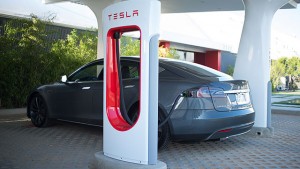 Ståle Andreassen, who works for his father’s gas station in Bodø (“Oh the irony,” he told me during our interview), in the northern region of the country, said he purchased, “Because the Model S is basically competing against a VW Passat (price wise) in Norway. In the U.S., it competes against an Audi RS7, [BMW] M6, etc. If the Model S cost just a little more than a VW Passat in the U.S., I think it would sell more, don’t you?”
Ståle Andreassen, who works for his father’s gas station in Bodø (“Oh the irony,” he told me during our interview), in the northern region of the country, said he purchased, “Because the Model S is basically competing against a VW Passat (price wise) in Norway. In the U.S., it competes against an Audi RS7, [BMW] M6, etc. If the Model S cost just a little more than a VW Passat in the U.S., I think it would sell more, don’t you?”
In terms of the power of word-of-mouth and how unofficial test drives from friends and family are propagating news of the value of the Model S in Norway, Andreassen said, “My father is about to replace his Audi A7 fully loaded with a P85D soon, so there will be two Teslas outside of our Esso station. First in the world?”
The Norwegian love of the Model S is tersely summarized by Are Koppang, an administrative director in Moelv, a city in southern Norway. “I drive a dream car, and cannot see how I will ever switch back to an ICE [internal combustion engine] vehicle.”
Embracing Renewable Energy
Culturally, Norway embraces renewable energy. According to EV News Report, 98% of the nation’s energy is derived from domestically generated, renewable sources. This is somewhat ironic, considering that the country, on a per-capita basis, is the world’s second largest producer of oil and natural gas, directly behind the Middle East (according to the CIA’s World Factbook). According to The Economist, “petroleum accounts for 30% of the government’s revenues.”
The desire to own a zero emission car was echoed by many responses I received from Norwegians. Sune Jakobsson, a system architect in Hommelvik, Sor-Trondelag, said he purchased a Model S, “To…buy an [electric car] with [a] more than 400 kilometer range, and the car is good for the environment.”
When asked why he purchased his Model S, Petter Karal, an owner from Oslo, said, “The opportunity to drive with a clean conscience.”
Goodbye Expensive Gas
Of course, one can’t discount the fact that gasoline is very, very expensive in Norway. In fact, as of February 2, gasoline in the country was selling at nearly four times the price in the United States, or more than $7.50 per US gallon. That’s no small incentive for Norwegians to dump gas-guzzling piston pumpers and adopt battery electric cars.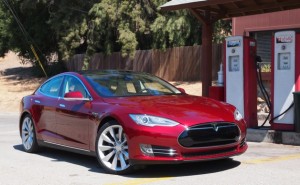
Arne Inge Dyrdahl, owner of a taxi company in Trondheim, cited saving money by not having to purchase gasoline as one of the primary benefits he gains from Model S ownership (he drives about 60,000 kilometers, or more than 37,000 miles, a year). “For me, tolls and fuel, if I only charge at home, saves me about 75,000 kroner [$10,000 USD] a year. More if I use Tesla’s free Superchargers.” Dyrdahl is anticipating delivery of his second Model S, a P85D, in March and has two Model Xs reserved.
Free Superchargers
Another reason for consumers in the country to consider a Model S is the healthy—and growing—network of Tesla Supercharger stations. Norway’s network of the fast-charge depots is currently populated by 21 such stations, available free of charge to all Model S customers (except those who purchase the entry-level 60 kWh model sans the “Supercharger Enabled” option, which is priced at $2,000 in the States).
All other Model S owners, if they live near one of these charging stations, get to enjoy free power for the life of their vehicle. In a country where petrol sells for more than $7 per gallon, this is no insignificant benefit. Tesla is planning to open five additional Supercharger stations in the country in 2015.
More Popular Than In California
Norwegians are adopting electric vehicles (EVs) in a way that matches the enthusiasm found in California. In fact, according to The Foreigner in a January 2015 article, sales of EVs in Norway have reached 15%, exceeding the saturation in the Golden State by nearly 50% (California recently reported 10% of new car sales being electric). “Some 40,000 electric vehicles were traveling on Norway’s roads as of December 2014,” reported the site.
When you add it up, it’s not surprising that Norwegians are embracing the Model S and purchasing the seductive sedan in record numbers. Even consumers who normally would find it difficult to justify the cost of a luxury car are doing the math and discovering that they can afford a Tesla.
Based on the savings from gasoline and no automotive tax, especially for those who pile on the miles, Norwegian consumers can enjoy a quiet, high-performance, luxury vehicle featuring state-of-the-art technology. Add in savings on maintenance (oil changes, transmission repairs, and exhaust work become a thing of the past), and no tolls or parking charges, and the mystery is solved: Norway loves the Model S because it saves them money and helps preserve their beautiful environment.
This is best summed up by Norwegian Model S owner Cato Standal, a manager with Emerson in Telemark, who said his purchase was a “Once in a lifetime opportunity to buy a vehicle with over 400 horsepower for the same price as a VW Passat,” adding, “Many of my friends who have tested the car [are] also thinking about buying [it].”
I’m surprised that I’m not seeing more Model S sedans show up in Lilyhammer. Apparently Tesla is more focused on engineering one of the world’s best battery electric cars than product placement. And Norwegians are applauding them all the way to the Supercharger station—after which they visit the bank to deposit what they saved on gas.

Elon Musk
Tesla engineers deflected calls from this tech giant’s now-defunct EV project
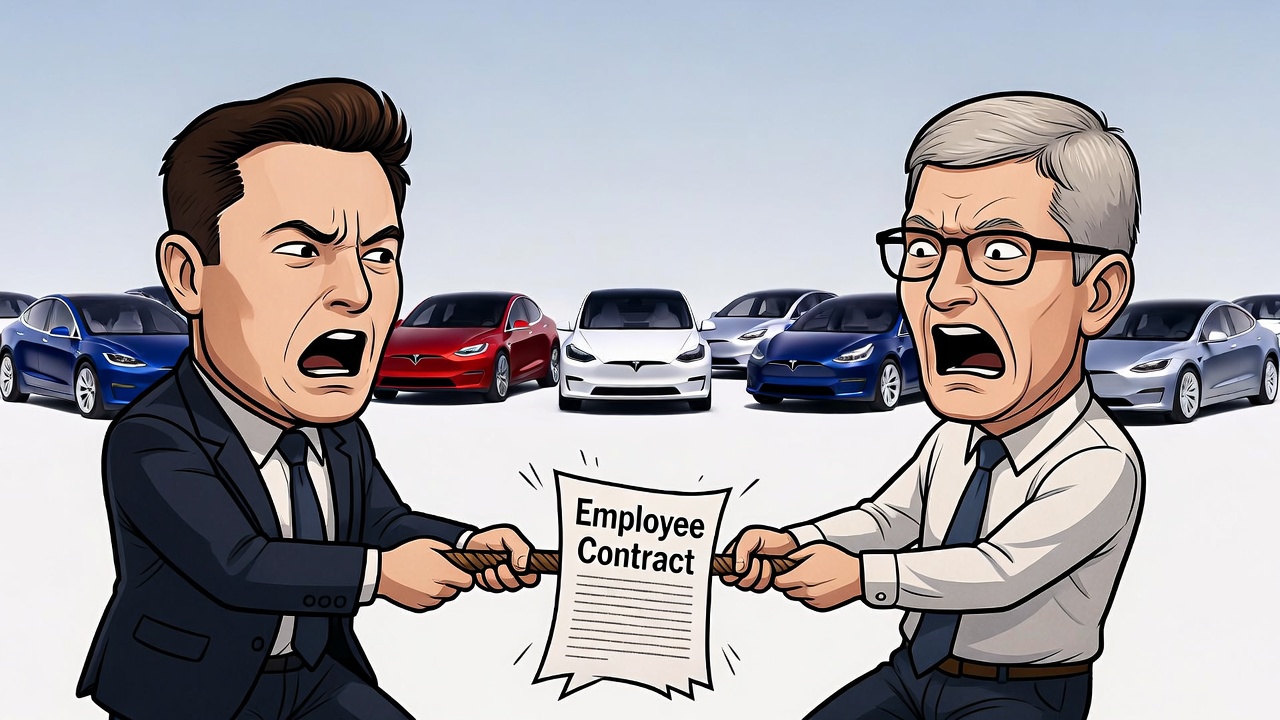
Tesla engineers deflected calls from Apple on a daily basis while the tech giant was developing its now-defunct electric vehicle program, which was known as “Project Titan.”
Back in 2022 and 2023, Apple was developing an EV in a top-secret internal fashion, hoping to launch it by 2028 with a fully autonomous driving suite.
However, Apple bailed on the project in early 2024, as Project Titan abandoned the project in an email to over 2,000 employees. The company had backtracked its expectations for the vehicle on several occasions, initially hoping to launch it with no human driving controls and only with an autonomous driving suite.
Apple canceling its EV has drawn a wide array of reactions across tech
It then planned for a 2028 launch with “limited autonomous driving.” But it seemed to be a bit of a concession at that point; Apple was not prepared to take on industry giants like Tesla.
Wedbush’s Dan Ives noted in a communication to investors that, “The writing was on the wall for Apple with a much different EV landscape forming that would have made this an uphill battle. Most of these Project Titan engineers are now all focused on AI at Apple, which is the right move.”
Apple did all it could to develop a competitive EV that would attract car buyers, including attempting to poach top talent from Tesla.
In a new podcast interview with Tesla CEO Elon Musk, it was revealed that Apple had been calling Tesla engineers nonstop during its development of the now-defunct project. Musk said the engineers “just unplugged their phones.”
Musk said in full:
“They were carpet bombing Tesla with recruiting calls. Engineers just unplugged their phones. Their opening offer without any interview would be double the compensation at Tesla.”
Interestingly, Apple had acquired some ex-Tesla employees for its project, like Senior Director of Engineering Dr. Michael Schwekutsch, who eventually left for Archer Aviation.
Tesla took no legal action against Apple for attempting to poach its employees, as it has with other companies. It came after EV rival Rivian in mid-2020, after stating an “alarming pattern” of poaching employees was noticed.
Elon Musk
Tesla to a $100T market cap? Elon Musk’s response may shock you

There are a lot of Tesla bulls out there who have astronomical expectations for the company, especially as its arm of reach has gone well past automotive and energy and entered artificial intelligence and robotics.
However, some of the most bullish Tesla investors believe the company could become worth $100 trillion, and CEO Elon Musk does not believe that number is completely out of the question, even if it sounds almost ridiculous.
To put that number into perspective, the top ten most valuable companies in the world — NVIDIA, Apple, Alphabet, Microsoft, Amazon, TSMC, Meta, Saudi Aramco, Broadcom, and Tesla — are worth roughly $26 trillion.
Will Tesla join the fold? Predicting a triple merger with SpaceX and xAI
Cathie Wood of ARK Invest believes the number is reasonable considering Tesla’s long-reaching industry ambitions:
“…in the world of AI, what do you have to have to win? You have to have proprietary data, and think about all the proprietary data he has, different kinds of proprietary data. Tesla, the language of the road; Neuralink, multiomics data; nobody else has that data. X, nobody else has that data either. I could see $100 trillion. I think it’s going to happen because of convergence. I think Tesla is the leading candidate [for $100 trillion] for the reason I just said.”
Musk said late last year that all of his companies seem to be “heading toward convergence,” and it’s started to come to fruition. Tesla invested in xAI, as revealed in its Q4 Earnings Shareholder Deck, and SpaceX recently acquired xAI, marking the first step in the potential for a massive umbrella of companies under Musk’s watch.
SpaceX officially acquires xAI, merging rockets with AI expertise
Now that it is happening, it seems Musk is even more enthusiastic about a massive valuation that would swell to nearly four-times the value of the top ten most valuable companies in the world currently, as he said on X, the idea of a $100 trillion valuation is “not impossible.”
It’s not impossible
— Elon Musk (@elonmusk) February 6, 2026
Tesla is not just a car company. With its many projects, including the launch of Robotaxi, the progress of the Optimus robot, and its AI ambitions, it has the potential to continue gaining value at an accelerating rate.
Musk’s comments show his confidence in Tesla’s numerous projects, especially as some begin to mature and some head toward their initial stages.
Elon Musk
Celebrating SpaceX’s Falcon Heavy Tesla Roadster launch, seven years later (Op-Ed)
Seven years later, the question is no longer “What if this works?” It’s “How far does this go?”
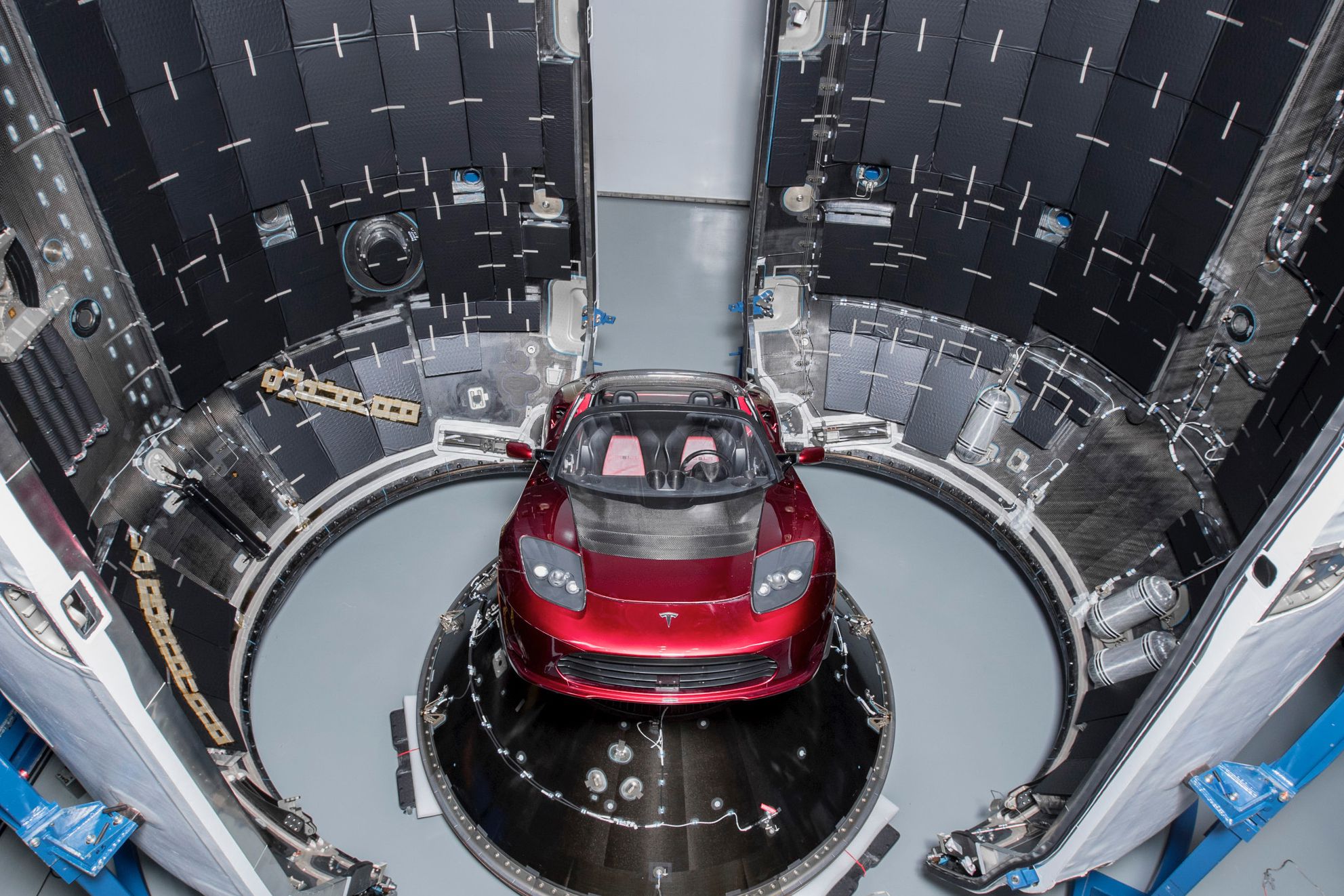
When Falcon Heavy lifted off in February 2018 with Elon Musk’s personal Tesla Roadster as its payload, SpaceX was at a much different place. So was Tesla. It was unclear whether Falcon Heavy was feasible at all, and Tesla was in the depths of Model 3 production hell.
At the time, Tesla’s market capitalization hovered around $55–60 billion, an amount critics argued was already grossly overvalued. SpaceX, on the other hand, was an aggressive private launch provider known for taking risks that traditional aerospace companies avoided.
The Roadster launch was bold by design. Falcon Heavy’s maiden mission carried no paying payload, no government satellite, just a car drifting past Earth with David Bowie playing in the background. To many, it looked like a stunt. For Elon Musk and the SpaceX team, it was a bold statement: there should be some things in the world that simply inspire people.
Inspire it did, and seven years later, SpaceX and Tesla’s results speak for themselves.
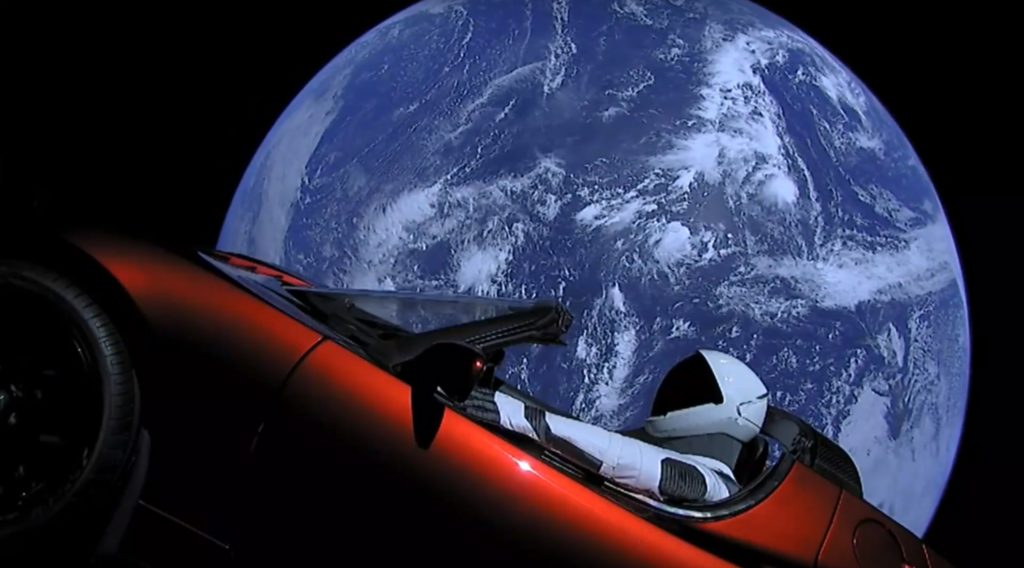
Today, Tesla is the world’s most valuable automaker, with a market capitalization of roughly $1.54 trillion. The Model Y has become the best-selling car in the world by volume for three consecutive years, a scenario that would have sounded insane in 2018. Tesla has also pushed autonomy to a point where its vehicles can navigate complex real-world environments using vision alone.
And then there is Optimus. What began as a literal man in a suit has evolved into a humanoid robot program that Musk now describes as potential Von Neumann machines: systems capable of building civilizations beyond Earth. Whether that vision takes decades or less, one thing is evident: Tesla is no longer just a car company. It is positioning itself at the intersection of AI, robotics, and manufacturing.
SpaceX’s trajectory has been just as dramatic.
The Falcon 9 has become the undisputed workhorse of the global launch industry, having completed more than 600 missions to date. Of those, SpaceX has successfully landed a Falcon booster more than 560 times. The Falcon 9 flies more often than all other active launch vehicles combined, routinely lifting off multiple times per week.
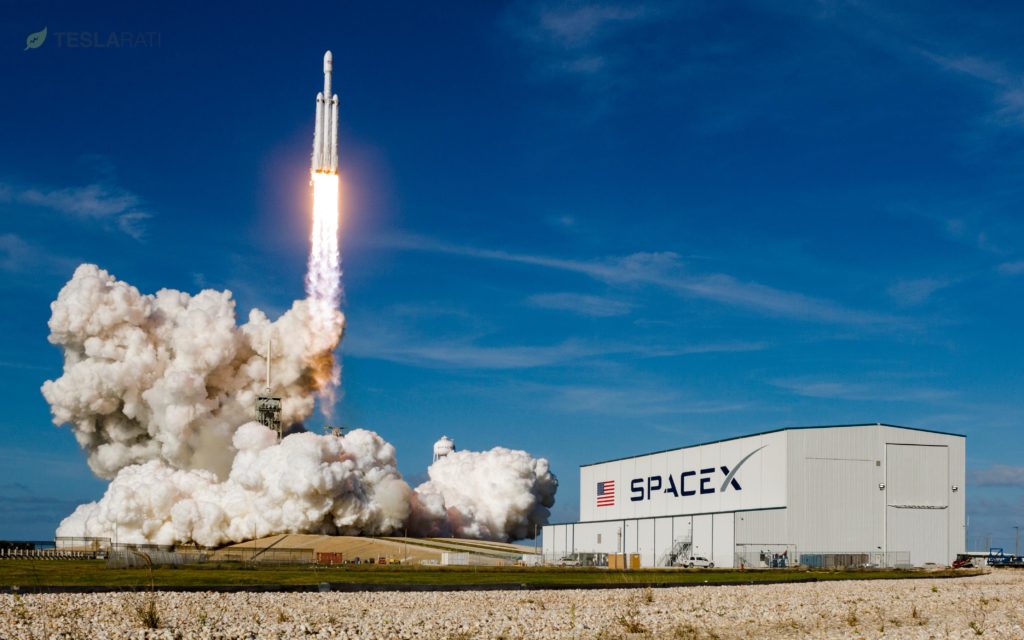
Falcon 9 has ferried astronauts to and from the International Space Station via Crew Dragon, restored U.S. human spaceflight capability, and even stepped in to safely return NASA astronauts Butch Wilmore and Suni Williams when circumstances demanded it.
Starlink, once a controversial idea, now dominates the satellite communications industry, providing broadband connectivity across the globe and reshaping how space-based networks are deployed. SpaceX itself, following its merger with xAI, is now valued at roughly $1.25 trillion and is widely expected to pursue what could become the largest IPO in history.
And then there is Starship, Elon Musk’s fully reusable launch system designed not just to reach orbit, but to make humans multiplanetary. In 2018, the idea was still aspirational. Today, it is under active development, flight-tested in public view, and central to NASA’s future lunar plans.
In hindsight, Falcon Heavy’s maiden flight with Elon Musk’s personal Tesla Roadster was never really about a car in space. It was a signal that SpaceX and Tesla were willing to think bigger, move faster, and accept risks others wouldn’t.
The Roadster is still out there, orbiting the Sun. Seven years later, the question is no longer “What if this works?” It’s “How far does this go?”
